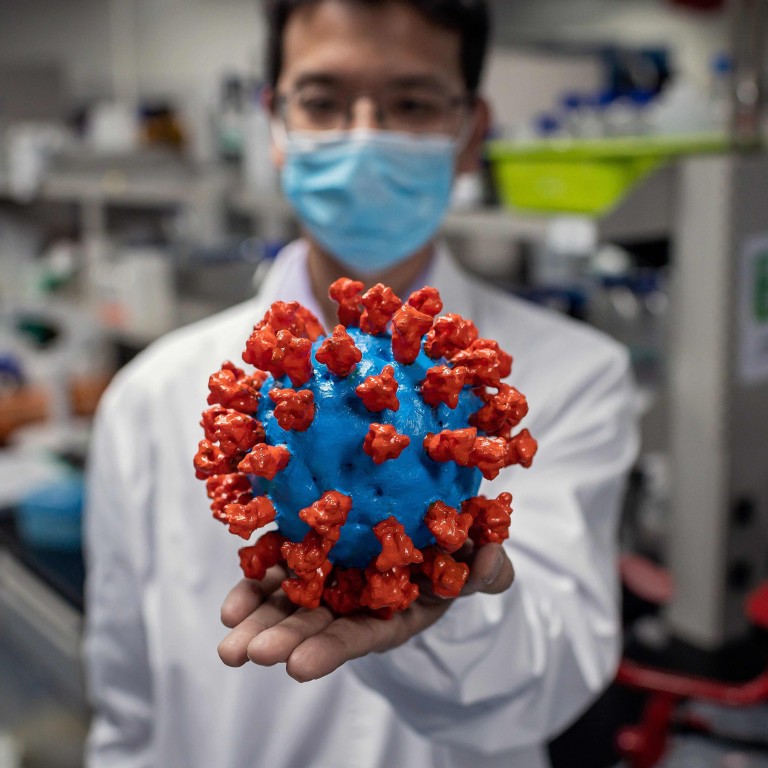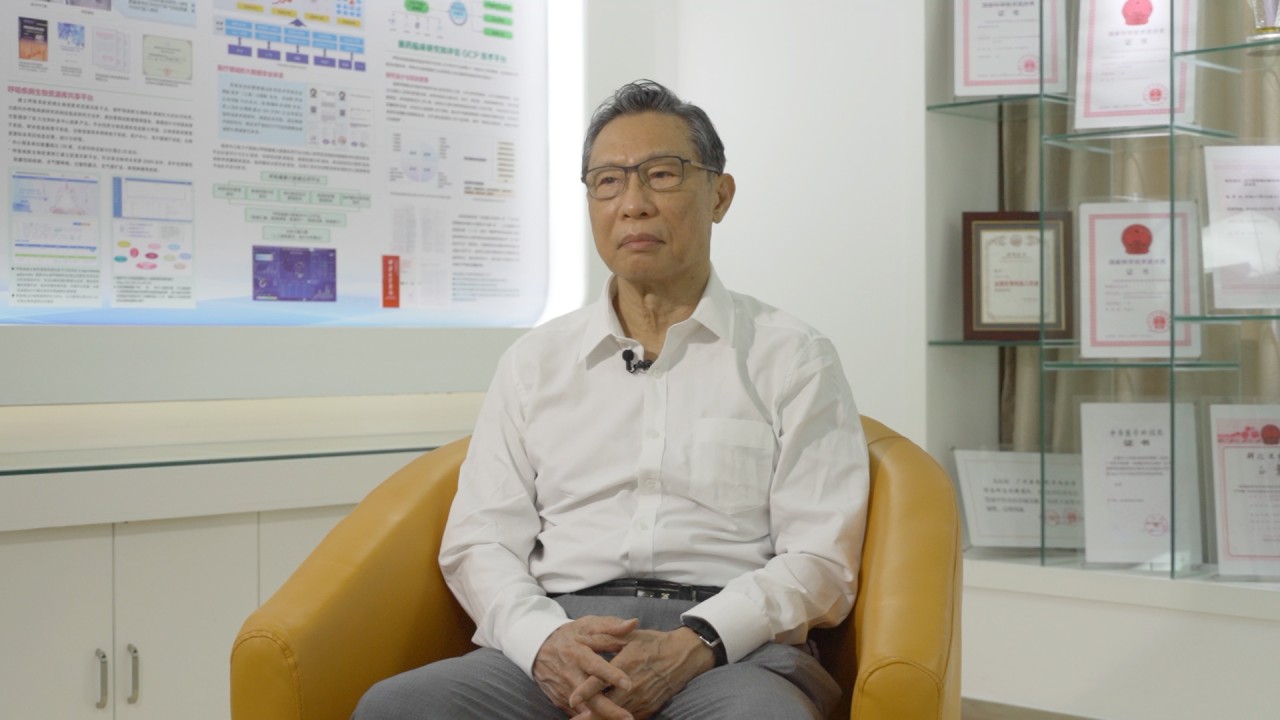
WHO remains tight-lipped on experts sent to investigate coronavirus in China
- Two specialists were in the Chinese capital on the weekend to talk terms of a bigger mission into the origins of the pandemic
- Much will depend on how much access the investigators are given to data and a laboratory in Wuhan, observers say
The WHO said last week that two experts – an animal health specialist and an epidemiologist – would start work on Saturday but by Sunday evening there was still no word on the name of the specialists, the schedule of the trip, and their agenda.
Chinese authorities did not make a statement about the visitors on the weekend and the Chinese media did not report their arrival. And no Chinese institution, including the Chinese Centre for Disease Control and Prevention, confirmed that it had or would confer with the WHO experts.
Associated Press reported that the two experts were in Beijing on Saturday and Sunday.

01:48
Worldwide reported coronavirus infections top 12 million
Their mission is to work with Chinese health officials and scientists to prepare for a larger WHO-led international task force at an undisclosed date.
Scientists hope WHO China visit will throw light on early Covid-19 probes
The WHO has also come under fire, with the United States – the body’s biggest funder – on Monday formalising its 2021 withdrawal from the United Nations health body over concerns that it pandered to China during its handling of the crisis.
David Fidler, a legal scholar and expert in global health, who has advised the WHO, said the US withdrawal would make it more difficult for the WHO to negotiate the terms of the international mission in China.
“Without the United States having WHO’s back, WHO has no leverage here. It’s in a difficult situation of how much does it dance to the tune that the Chinese government and Communist Party wants it to dance to,” said Fidler, who is an adjunct senior fellow at the Council on Foreign Relations in New York.
However, Wang Yiwei, director of the Institute of International Affairs and Centre for European Studies at Renmin University, said Washington’s withdrawal might have prompted China’s cooperation.
“More is expected from China after the US withdraws – about the investigation of the source, vaccine innovation, and collaboration to deal with and combat … the virus,” Wang said.

03:21
Chinese respiratory disease expert on origins of Covid-19 and Wuhan virus lab conspiracy theories
Preparation for the mission follows a May resolution, supported by China and passed by unanimously at the World Health Assembly, the WHO’s decision-making body, calling for the organisation to work to identify the source of the virus, which is thought to come from bats before passing into humans, perhaps via an intermediary animal.
Yanzhong Huang, a senior fellow in global health governance, also with the Council on Foreign Relations, said a transparent investigation by the WHO could be a chance for the organisation to “rebuild its reputation and show it is an authoritative neutral actor in global health governance”.
But the “composition of the [future international] delegation, where are they going to visit, what is the plan of the investigation, this is all subject to negotiation,” he said, adding that even the WHO’s comments last week that Wuhan would be the starting point for the inquiry “is subject to negotiation or has to be decided by the Chinese side”.

07:32
Coronavirus: From mysterious origins to a global threat
Much depends on how much access the team gets to data and to investigate different scenarios, including the theory that the virus is linked to a Wuhan lab, some observers say.
Daniel Lucey, an infectious disease and outbreak expert at Georgetown University Medical Centre, said the international team would need to “adequately address” this theory.
But Fidler said access to the lab would not necessarily give insight, because the team would not see “day-to-day operations”, nor would it quell American suspicions about the facility.
The risk-free upsides for China in the WHO’s coronavirus origin quest
“The Trump administration is not going to believe anything that comes from the WHO or China on [the lab],” he said.
Chinese foreign ministry spokesman Zhao Lijian said last week that China’s invitation to the WHO experts “to discuss science-based origin tracing” was part of China’s “contribution to global public health cooperation as a responsible major country”. But he also suggested that similar investigations would need to take place around the world, including the United States.
Huang, from the Council on Foreign Relations, said China had its own incentives to be open, because it wanted to find answers and might see the WHO mission as a way to bolster its standing as a global health leader.
“If the purpose is to show that they are cooperative and forthcoming, and then they are not that cooperative, that will tarnish China’s image,” he said.
Additional reporting by Associated Press

